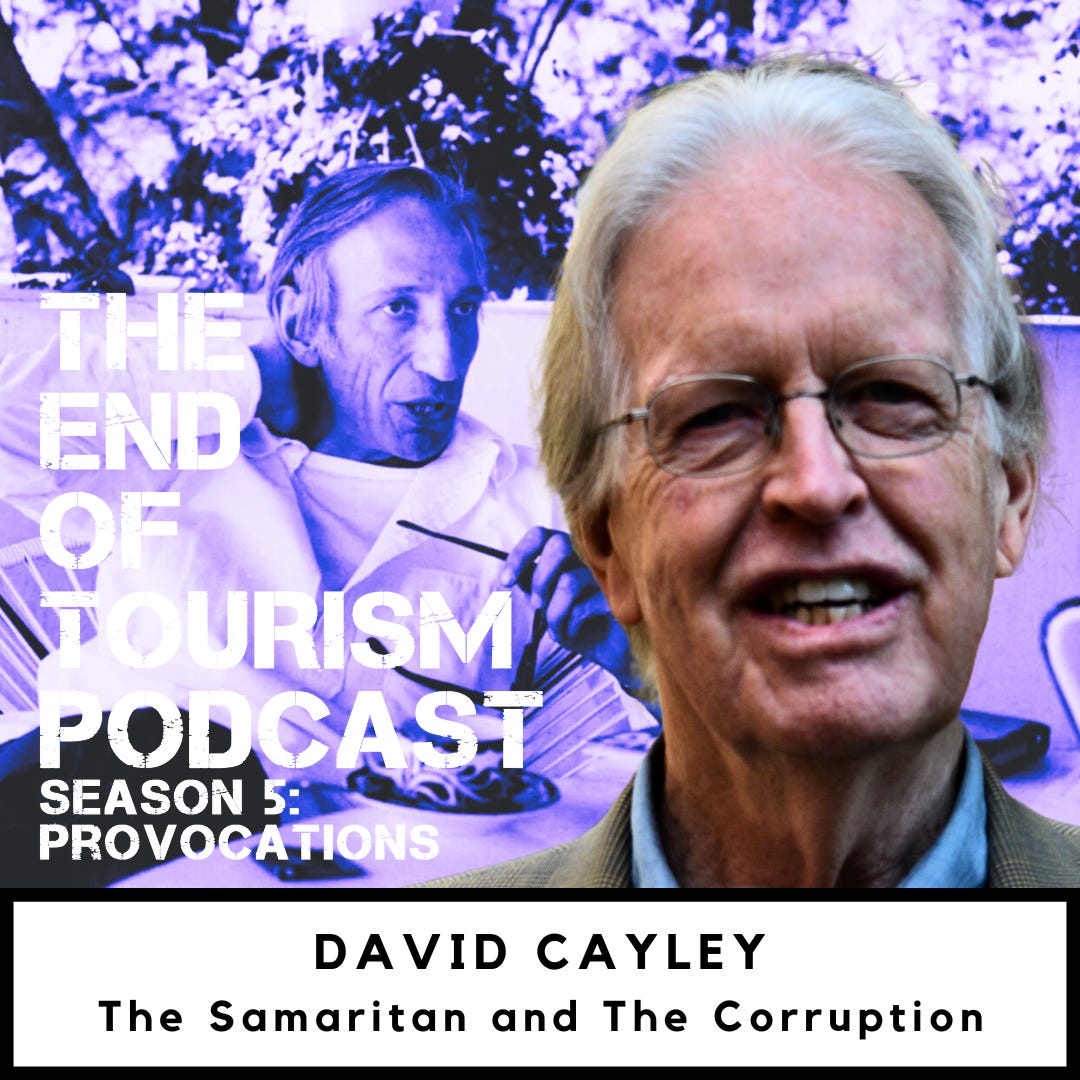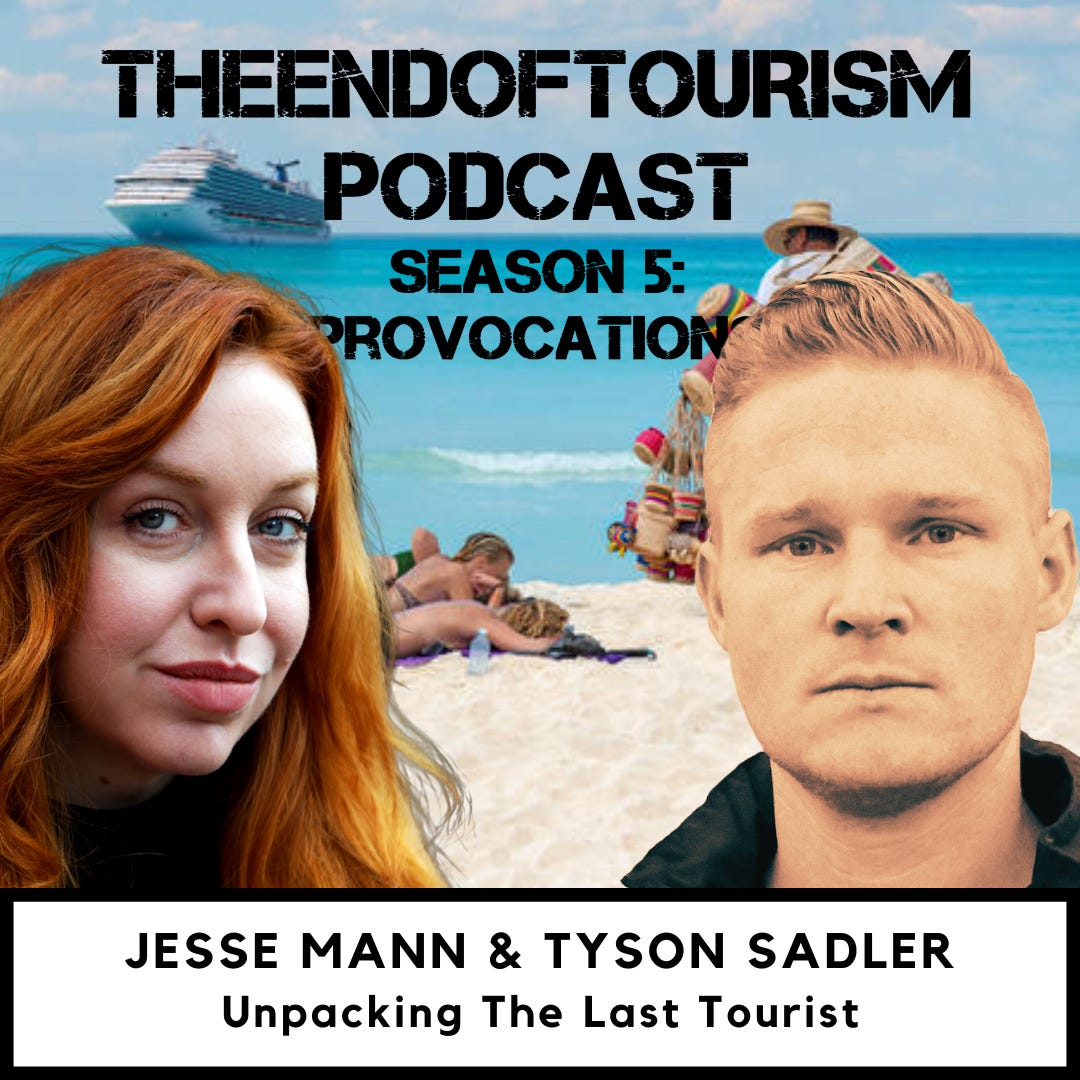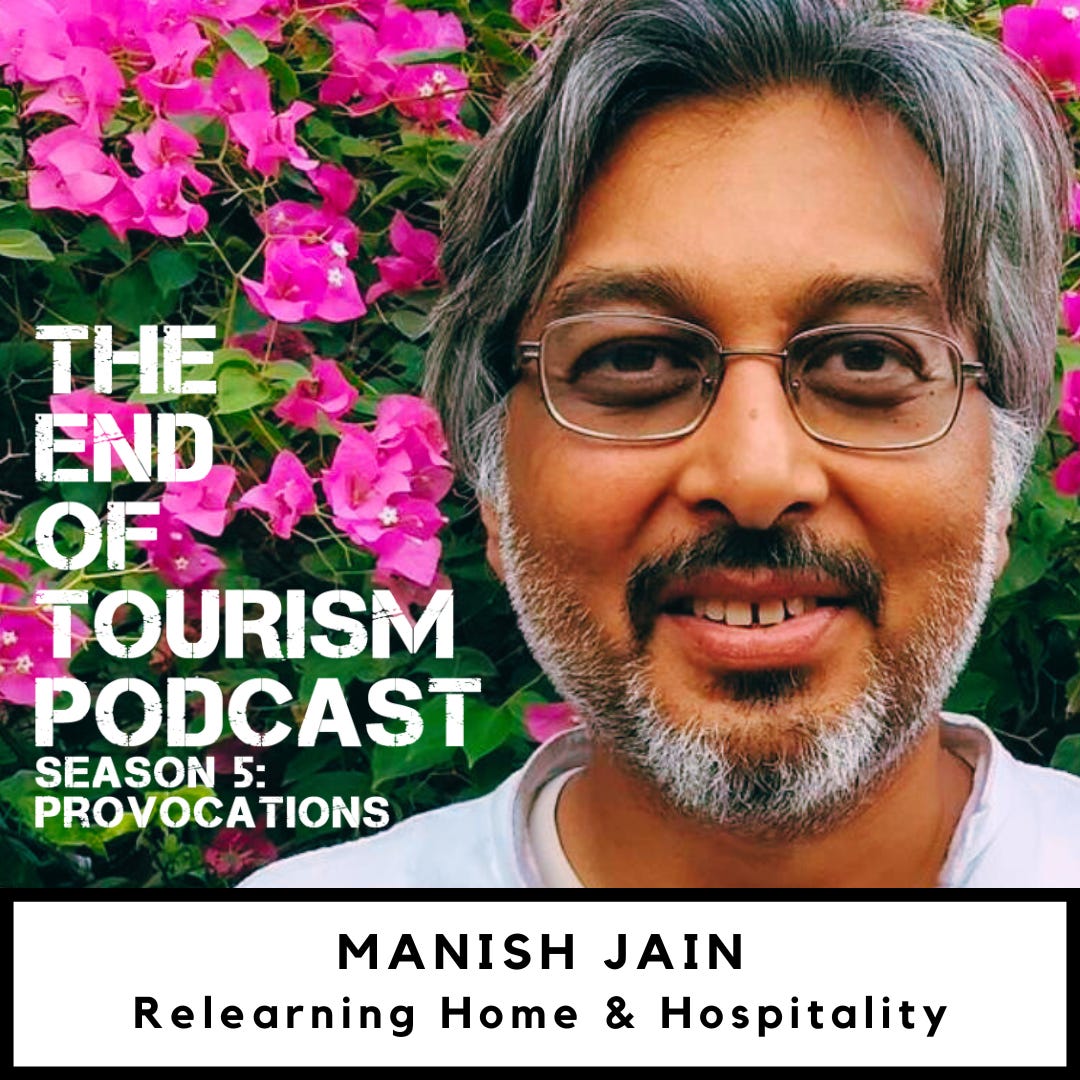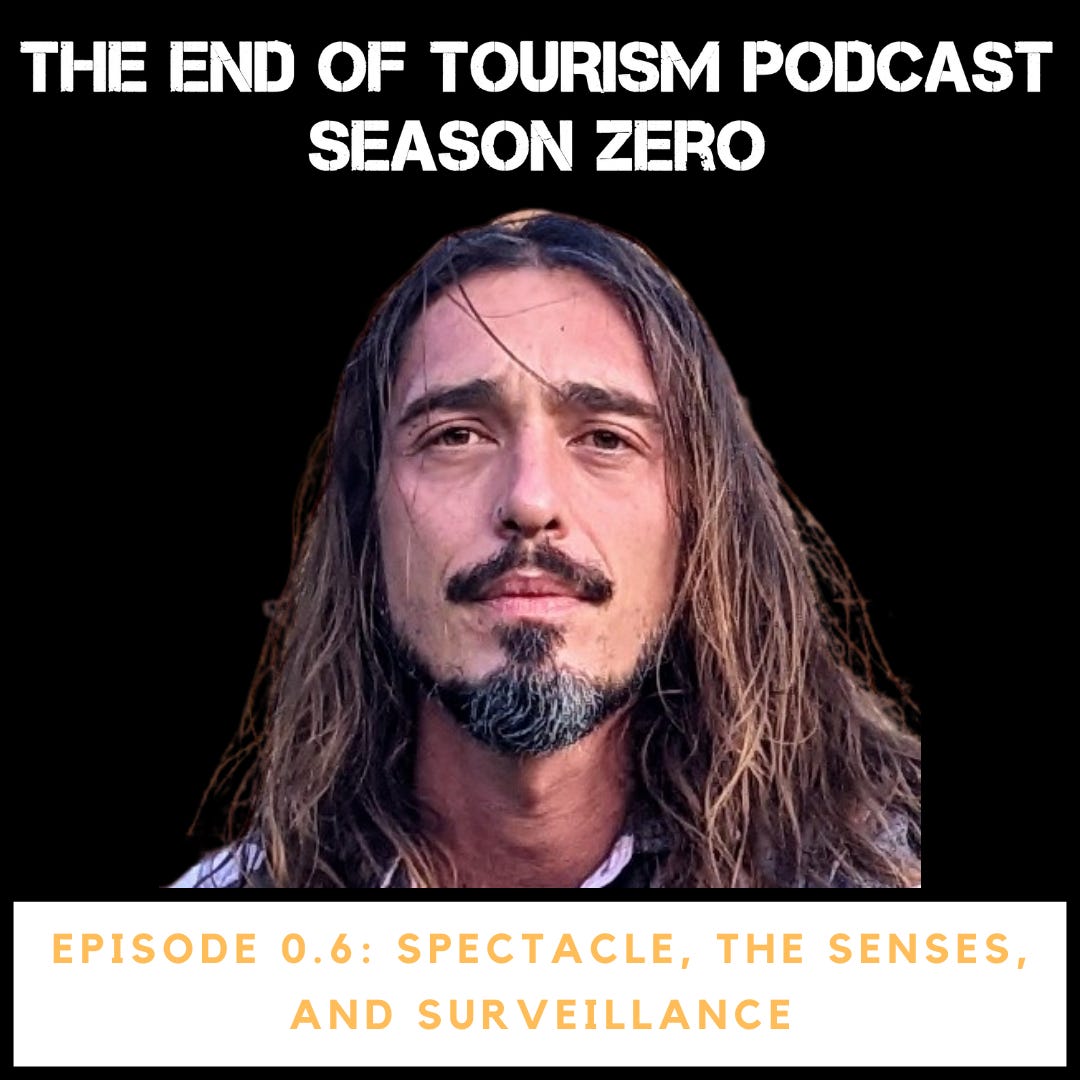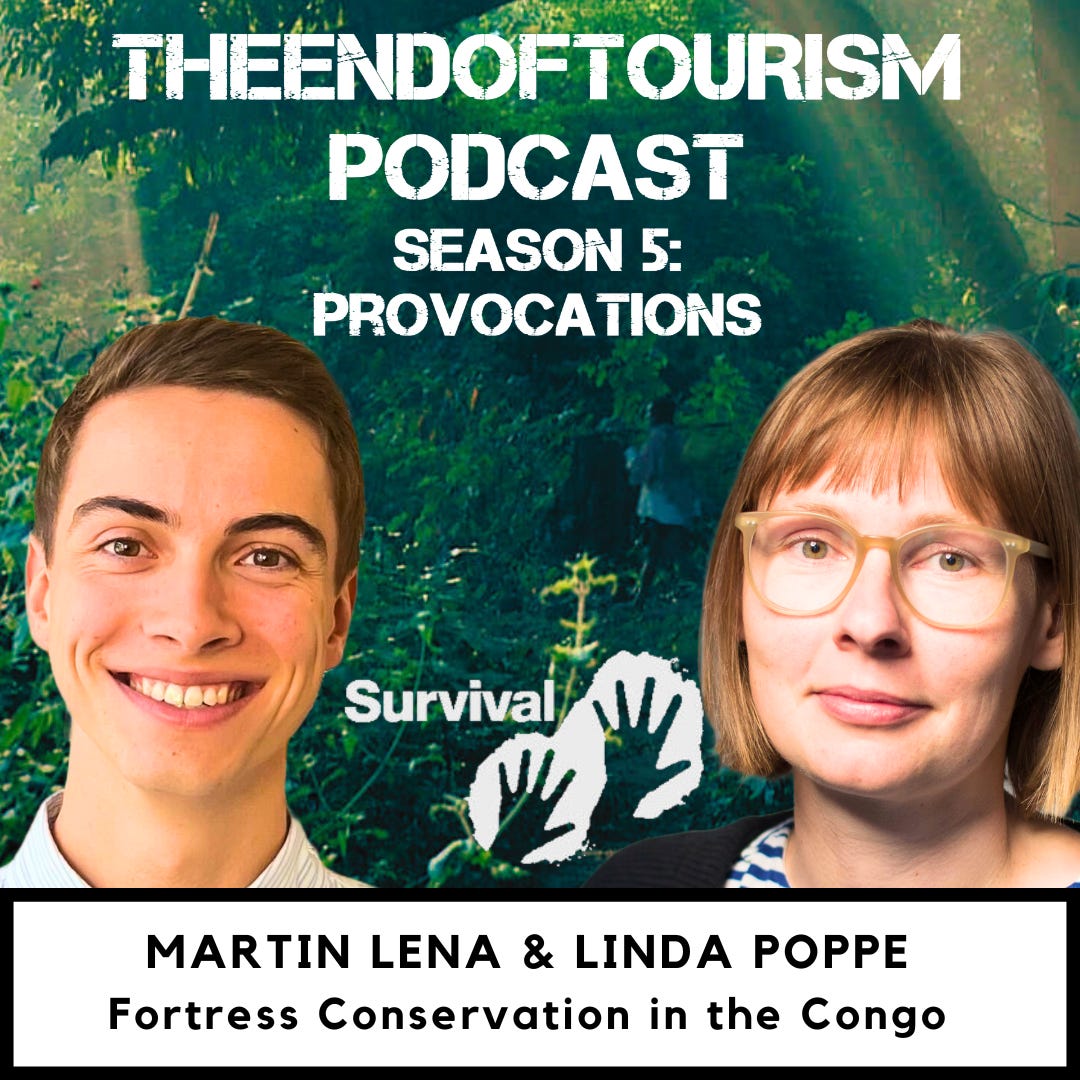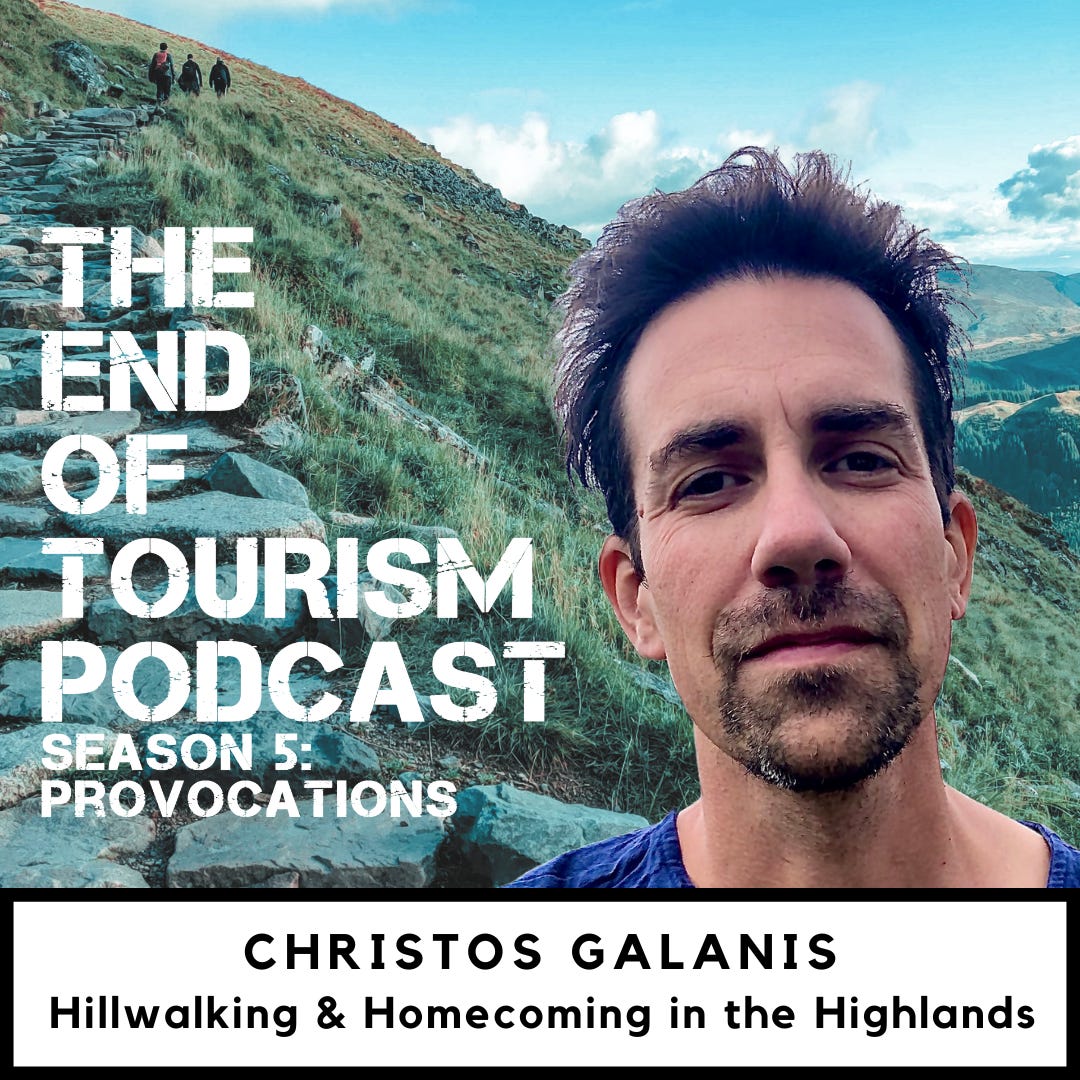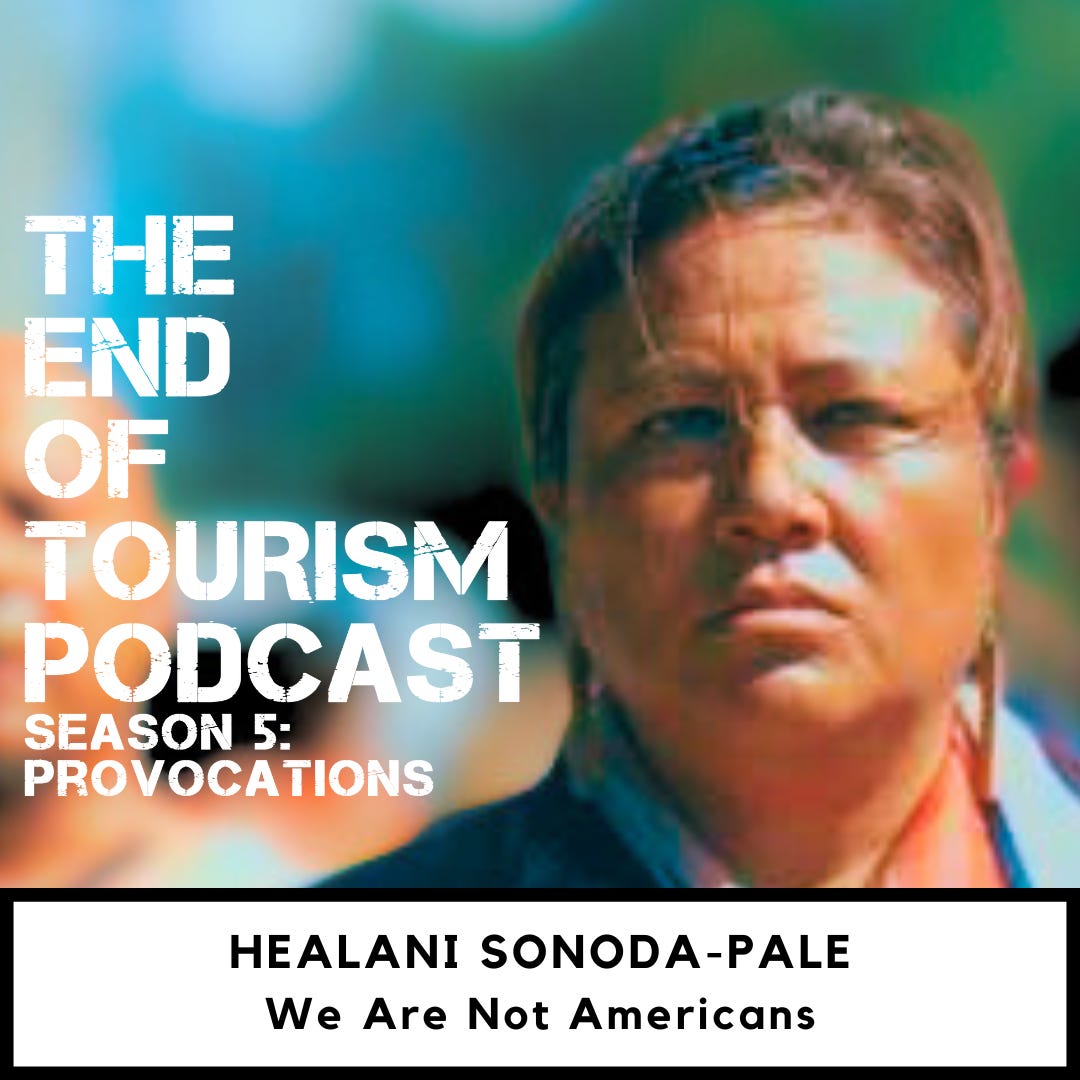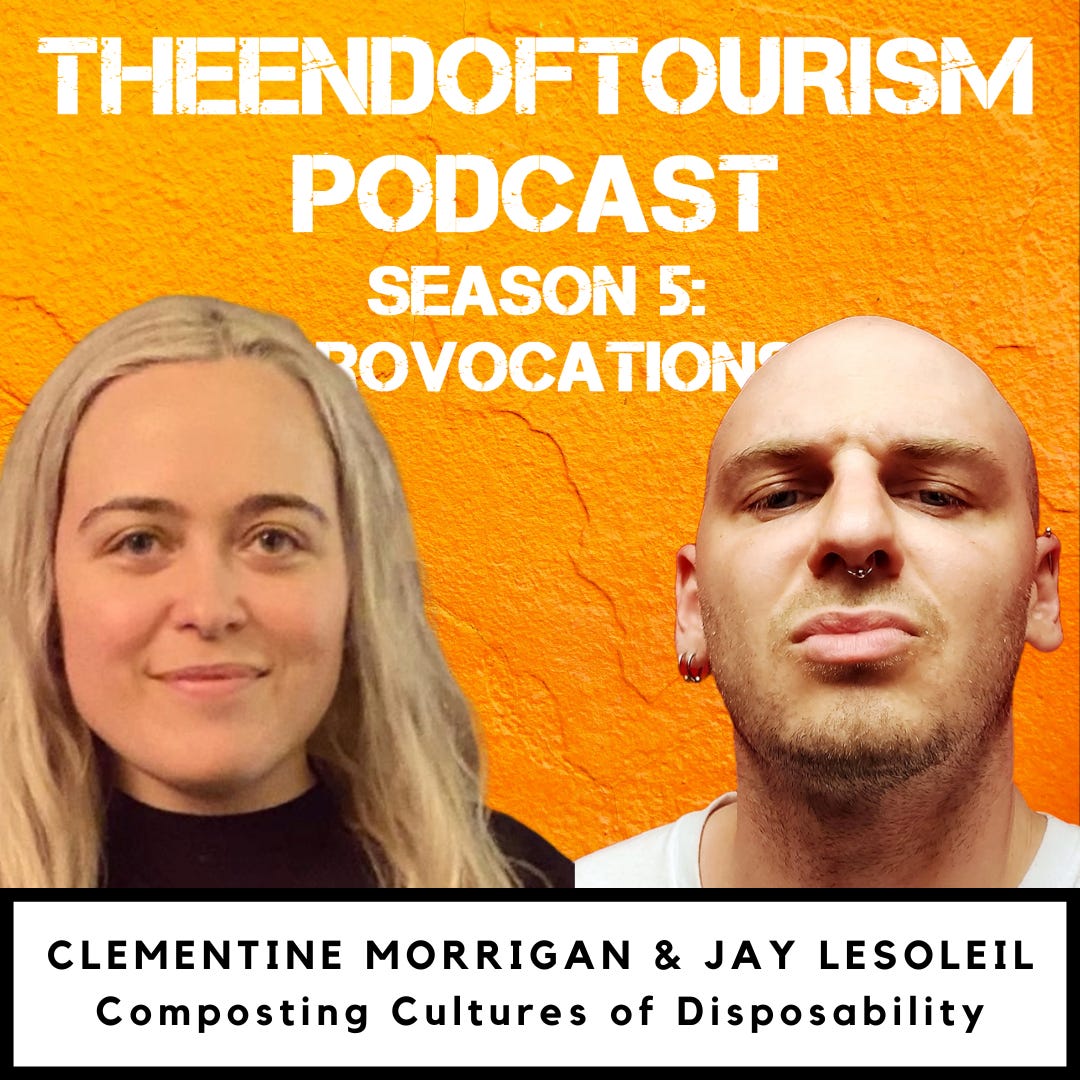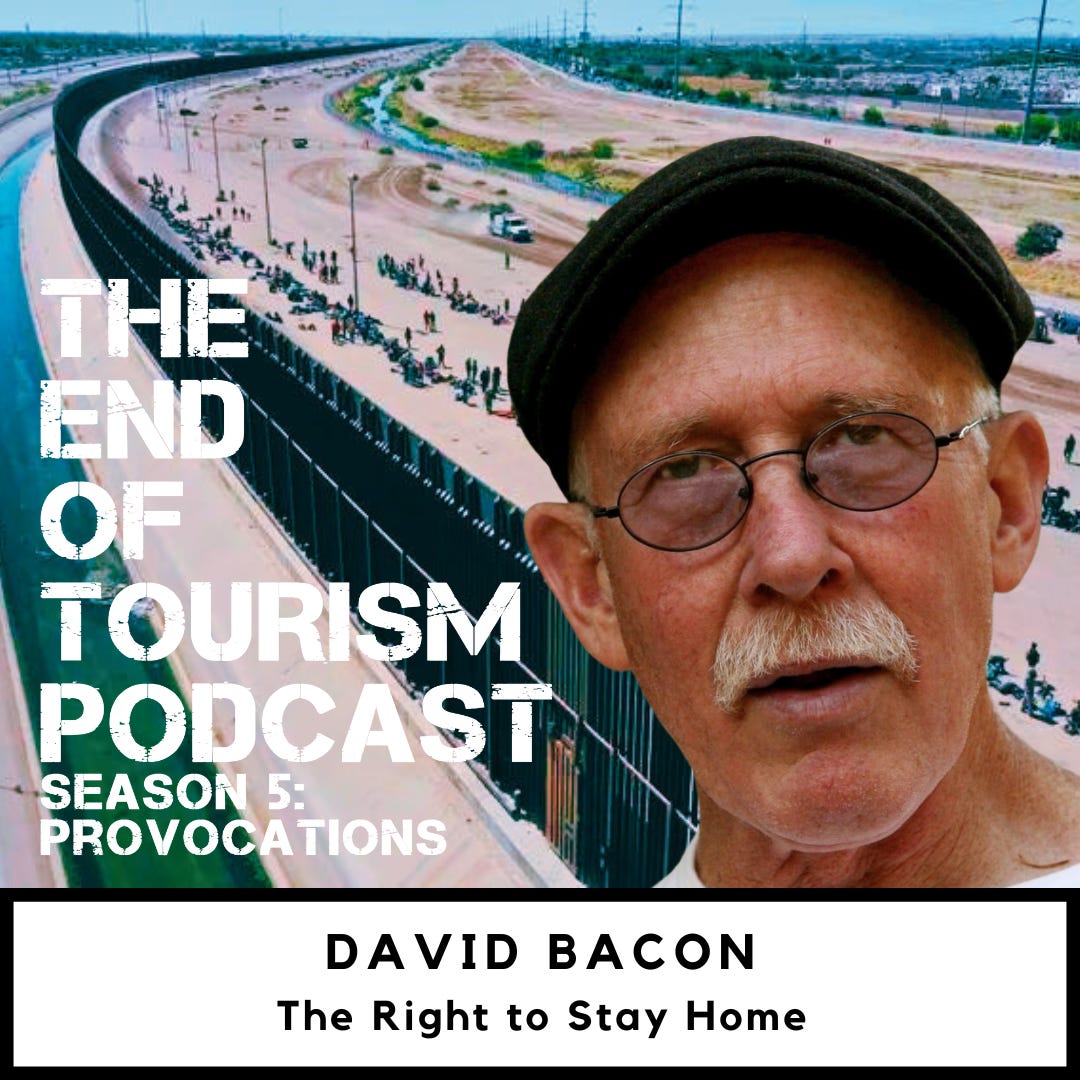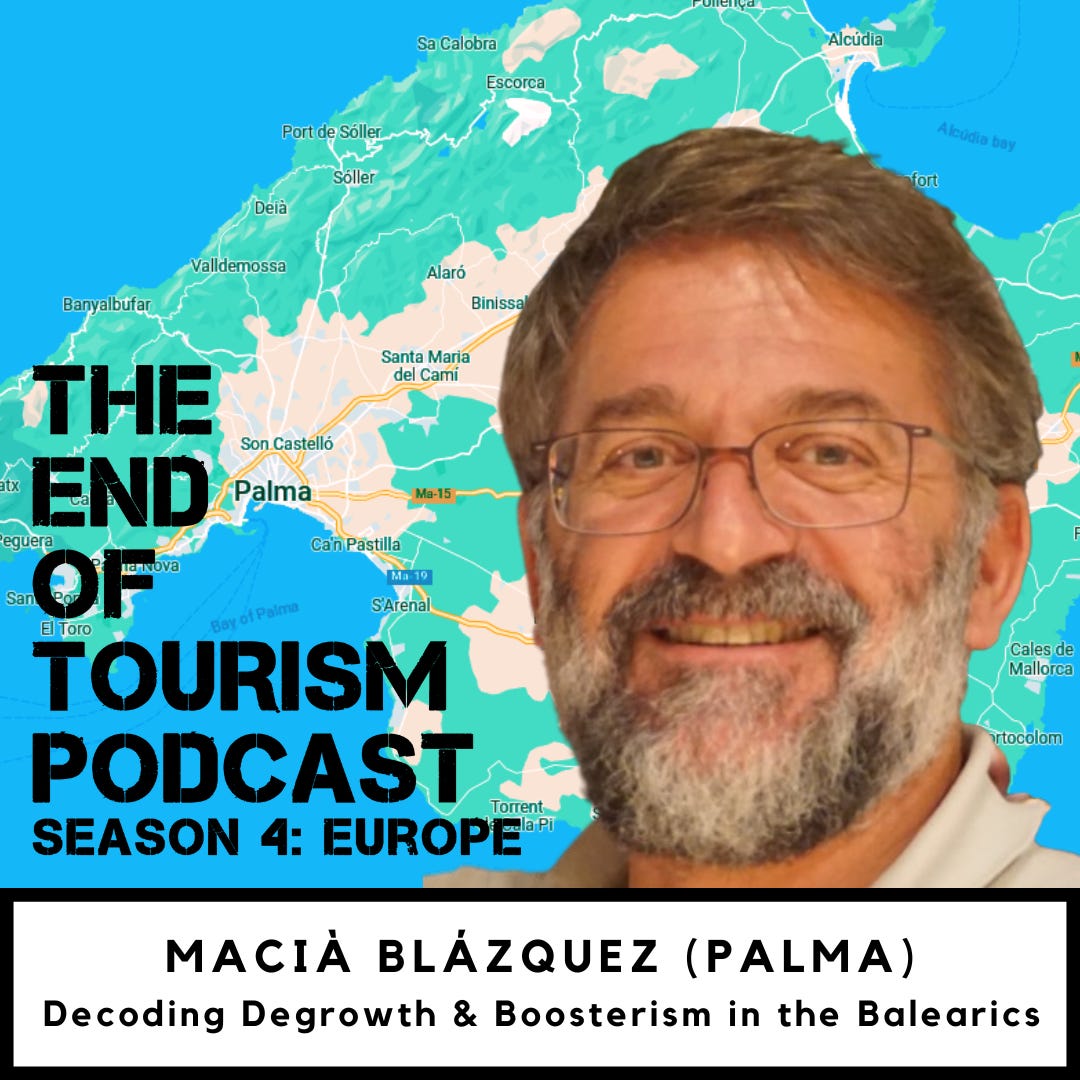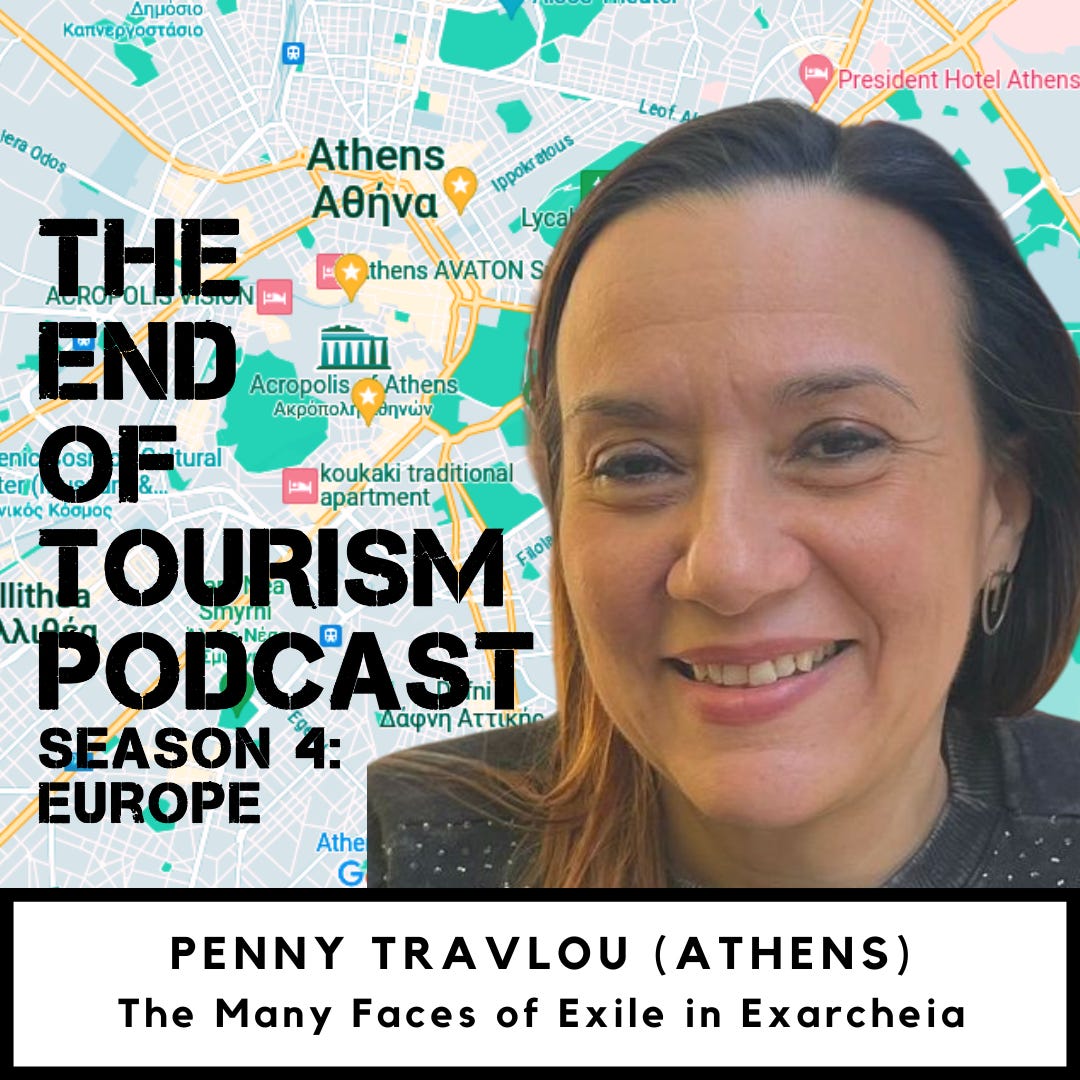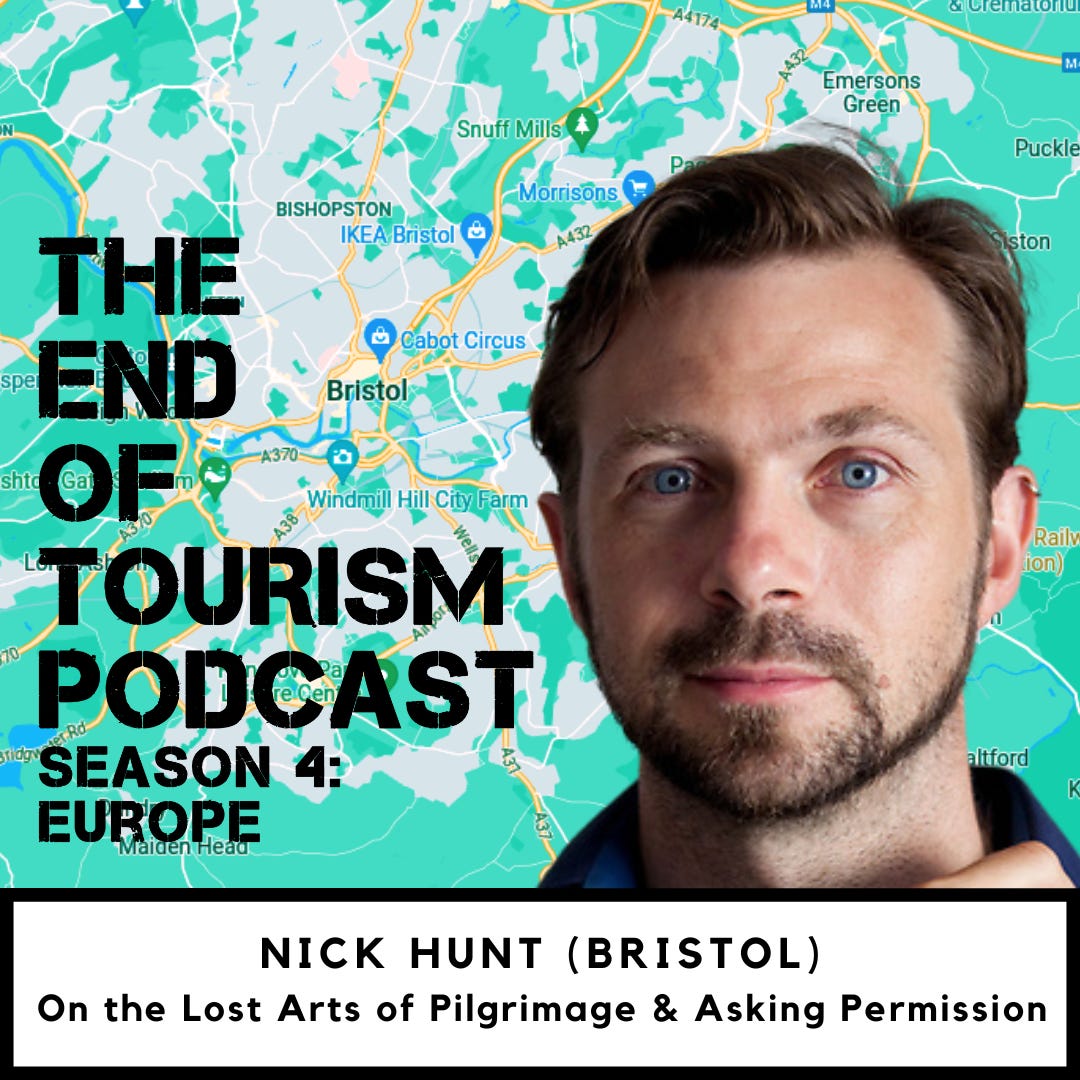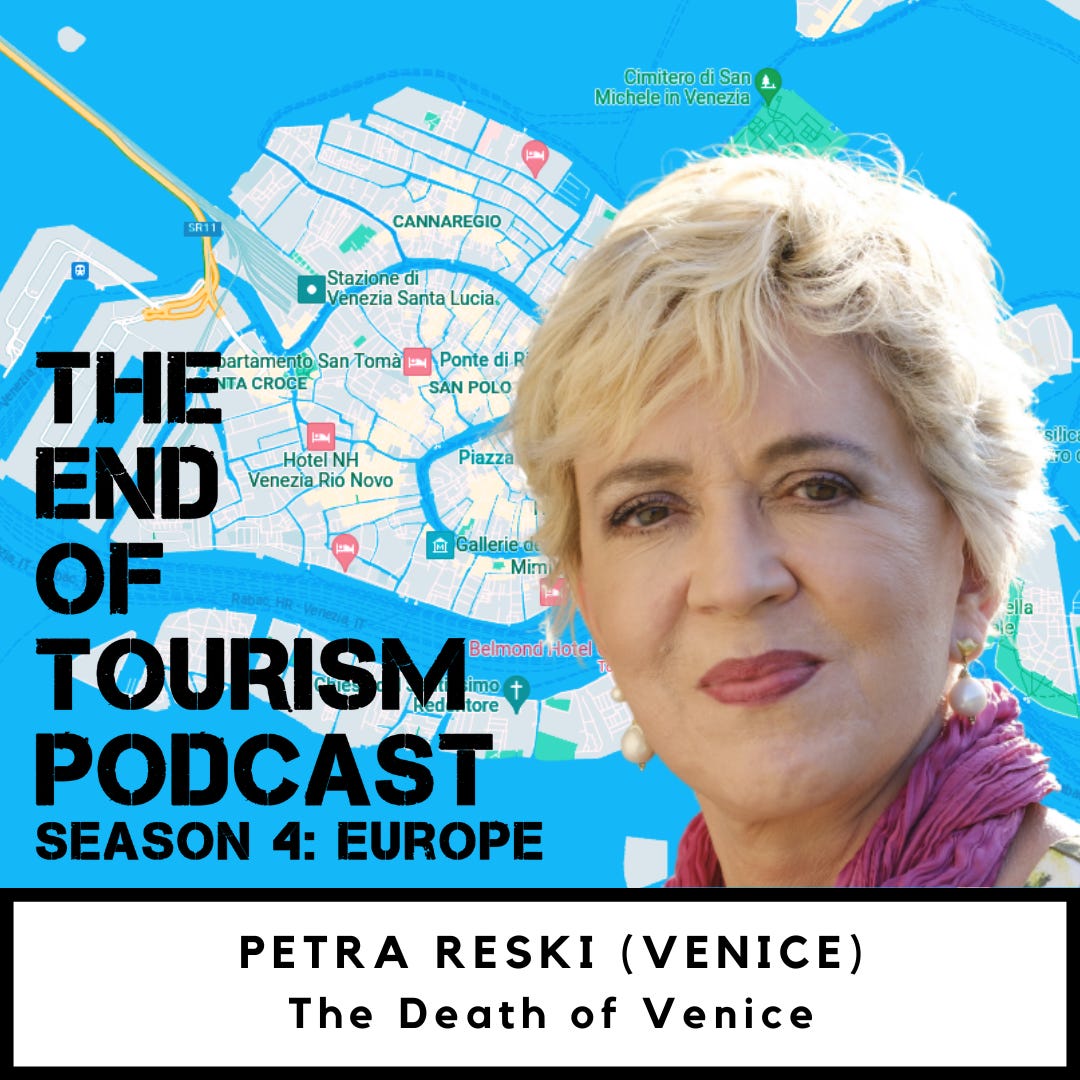S4 #4 | Feeding Those in Flight w/ No Name Kitchen (The Balkans)
Description
On this episode, my guest is Barbara from No Name Kitchen, an independent movement working alongside the Balkans and the Mediterranean routes to promote humanitarian aid and political action for those who suffer the difficulties of extreme journeys and violent push-backs.
Their actions include medical care, distributions of food and clothes, legal support and the denunciation of abuses at the borders, where thousands of human beings keep suffering violence, fatigue and sickness during their migratory processes.
No Name Kitchen was born in Belgrade by winter 2017 when a group of volunteers started cooking in Belgrade alongside the thousands of people who were fending for themselves after the closure of the Hungarian frontier. Since then, NNK supports those who suffer the lack of safe and legal pathways, collecting testimonies and denouncing the systematic use of institutional violence at the borders.
Show Notes
No Name Kitchen: What’s in a Name?
Social Media as a Tool for Organizing
The Kitcheneers
It’s a Border Crisis, not a Migration Crisis
Why do People Seek Asylum in Europe
How the EU is Breaking its Own Laws
Border Violence in the Balkans
What are Pushbacks?
The Silence of Big-Name NGOs
From Hospitality to Hostility: A Story in Kladusa
Migrants as Puppets in Political Wars
The EU’s Racist Immigration Actions
The Lives of NNK’s Guests After the Border
Homework
No Name Kitchen Website - Facebook - Instagram - Twitter
Latitude Adjustment Program Podcast episode w/ No Name Kitchen
Transcript
[00:00:00 ] Chris: Welcome, Barbara, to the End of Tourism Podcast. Thank you for joining us on behalf of No Name Kitchen.
[00:00:07 ] Barbara: Thank you very much, Chris.
[00:00:10 ] Chris: I'd love it if we could start off with you telling us where you find yourself today, both geographically and perhaps emotionally as well. What does the world look like for you?
[00:00:21 ] Barbara: So, actually in a very interesting place because I am visiting one friend who was living with me in Bosnia, who's one of the persons that started with me and developed with me the project of No Name Kitchen in Bosnia. And so I'm visiting her that we didn't see her for the last four years because we're all the time very busy with our lives and with our different projects.
So I'm here with her these days with plan to head to Croatia next week. Because the political context changed in the borders a little bit in the last month and now there are people on the move in that are passing through Rijeka, this one Croatian city, and I want to go to see the situation there.
And then maybe, if I find the time, I will also head Kladusa and Bihac that are the border areas of Bosnia where I used to live in the past and where I spend a lot of time with my life there.
[00:01:14 ] Chris: Mm. Interesting. And you're from Spain originally, is that correct?
[00:01:18 ] Barbara: Yeah, I'm from Spain and normally I, I spend the most of the time in Spain in the last years because sometimes you need a break from the border. Emotionally I feel very well as well because I'm with my friend who is a brilliant person and I adore her. She was a perfect colleague you know, when you're at the border, the life is very tough. You see a lot of people suffering.
But having her as a colleague, it was beautiful thing because we gave too much support to each other.
[00:01:44 ] Chris: What a blessing. What a blessing. Mm.
[00:01:47 ] Barbara: I was very lucky.
[00:01:49 ] Chris: Well, I know that a lot of the work that No Name Kitchen does is based in the Balkans and as well in Ceuta in Spain. And we'll come to those regions momentarily.
But I'd like to ask you first why no name Kitchen? Why a kitchen without a name?
[00:02:07 ] Barbara: It's a very nice story because No Name Kitchen was born in a very informal way. You know, it is not actually an organization. It's a movement of people. And there are different organizations registered in different countries, but itself No Name Kitchen is a movement of people helping people. And in 2017, so let's make a little bit of context. In 2016, European Union sent money to Turkey to close the border of the Balkans. Yeah.
So, in the beginning of 2017, in the winter, many people found themselves in Serbia. They were trying to migrate to go to some country in Europe, and then they found themselves in Serbia with the borders of European Union closed. And many people like were activists that went to Greece to help people on the move because they knew the situation or what was happening since 2015.
You probably remember in 2015 all this amount of people that were going from Turkey to somewhere in Europe to ask for asylum, to seek international protection. So many people were in Greece helping. They got information that in the city center of Belgrade, which is the capital city of Serbia, they were like more than 1000 people, mainly from Afghanistan at that moment, many of them minors with no parents, living in the old train station in a very bad conditions. And the weather was horrible. It was super cold. It was probably one of the coldest winters of the last years. So they just went there. They got some food from an organization. They went there and they saw a horrible situation where no one of the big institutional organizations were helping.
So then, they, with these posts that they had and asking for, help in social media, in their own social media, people start sending money and they start cooking right away. So, then they found this group of activists from many countries found themselves cooking every day and also together with people on the move and distributing food every day, every night.
And then one day, they were like, this seems like an organization. We actually are kind of organization. And then one guy, one from Afghanistan, he wrote on the wall with a spray kitchen. No, because it's like, we have a kitchen, we have an organization, but we have no name. And then it's the same guy.
He wrote "No Name," and then it was like, "No Name Kitchen." And it just stay like this. I think it's amazing. It's a very pure name and it really shows what is the way No Name Kitchen movement works. Its informal way of people cooperating and doing things together and helping each other.
[00:04:31 ] Chris: And so in that context, it was a spontaneous organization of people, or how did they, I mean, obviously people heard about this, but how did they come to organize together?
[00:04:41 ] Barbara: Social media is most instant thing, right? So, they opened this facebook profile, and then they say, what is going on. Some journalists started going there because these activists started talking about the situation. So, journalism and photojournalists went there and start showing the images. Mm-hmm. Oh, because it was really like minus 20 degrees and things like that. And people were living in the old train station and were using this wood from the old train station that has this liquid that is toxic.
So it was pretty awful. And also at the same time, the activists start hearing all these stories about the pushbacks, which is, yeah, something I would keep denouncing, since then, that is when people try to enter European Union, police will push them back to Serbia with violence, which is totally illegal.
So yeah, it was just people that were in Greece trying to help people in Greece. Finally, everybody knows everybody in this activist world, and if you don't know anyone, then you contact someone and then this person will tell you, "Ah, there is this group of people doing that."
Maybe you're interested. And then with the Facebook, they started to ask for donations. They started to call for more people to go and help because the situation was a big emergency and needed more, more people. Some other people will give interviews on newspapers, for example.
I was not there at the moment. I arrived some months later. And how I met No Name Kitchen is because one girl told her situation to one Spanish newspaper. I read this interview. I found like amazing what they're doing. I found them on the social media and I contacted No Name Kitchen. And then I head to Belgrade few months after. So yeah, spontaneously.
[00:06:11 ] Chris: Within the kitchens themselves, if we can call it that, within the No Name Kitchens, what kind of people end up showing up?
Are these people who are already a part of the No name Kitchen Network? Or are they local people as well?
[00:06:24 ] Barbara: Well, we call ourselves "kitcheners." It's many different kind of people. Like really it's, it's people. People want to help. People are good, despite all the politics that surround us, there is a lot of beautiful people in this world, and they can be someone who is. Retired and he was a lawyer in his life and now he finished his work and he's 66 years old and he wants to do something and he goes to Serbia and he spends there two months. He can be someone that's 22 ye


